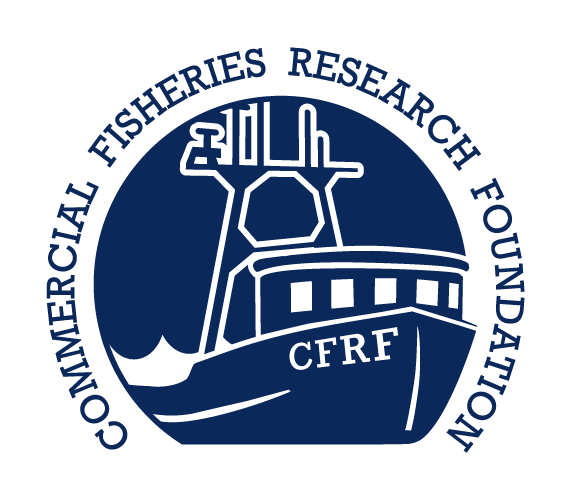Creating an Informed Implementation Strategy for Automatic Squid Jigging through Knowledge Exchange
Three longfin inshore squid (Doryteuthis pealeii) which make up a large part of the annual landing of squid in Southeast New England. Photo credit: Roger Hanlon
general description:
The coastal longfin squid fishery is one of the most important in the Northeast, with Rhode Island harvesting 14,360 metric tons in 2022. Traditionally, the squid fishery in Southern New England has used large otter trawls to harvest this species. While internationally, other countries with well-established squid fisheries use other techniques, namely automatic jigging systems to fish for squid. By piloting automatic squid jigging machines we seek to continue this industry’s profitability while simultaneously increasing squid quality, decreasing the impact on the environment, and reducing bycatch utilizing a more targeted harvesting approach. This method also has the potential to be utilized within wind farms or other areas closed to trawling due to potential gear conflicts because squid jigging is done while stationary. Through our pilot project and conversations with members of the Mid-Atlantic Fisheries Management Council we have decided to seek expertise from the well established Japanese squid fishery to help design the next steps of automatic squid jigging development.
project team:
EX-2N automatic squid jigging machine we will be using for this study.
Commercial Fisheries Research Foundation
Matt Rodriguez - Project Lead
N. David Bethoney
The Town Dock
David Monahan, Captain, F/V Lightning Bay
Katie Almeida, Fishery Policy Analyst
Mike Roderick, Director of Purchasing
Japan Fishing Machine, LLC.
Keiichiro (Kei) Hamano, CEO
Tamotsu Inoue, Master squid fisherman
Knowledge Exchange Program:
Jig caught squid.
Crew of the FV Lightning Bay after our first weeklong squid jigging survey in September 2024.
The Japanese squid jigging industry is one of the oldest and most well-established fisheries targeting squid using this method. Through a mutual third party, we have engaged in an ongoing partnership with Japan Fishing Machine LLC which will enhance the likelihood successfully diversifying the commercial squid fishery here in the United States. We have invested in automatic jigging machines used by Japanese fishermen and will be working under the guidance of Japanese squid fishing masters. By working directly with these masters here in Rhode Island we will gain the best possible experience and insight to successful automatic squid jigging techniques that we will emulate, apply, and share with the local industry. This will ideally allow us to create a development plan that will be vital to future at-sea gear trials efforts as it will assist in refining fishing techniques and practices to increase catch rates as well as provide targets for economic viability.
In the Fall of 2024, our Japanese collaborators joined us for at-sea sampling aboard the F/V Lightning Bay. We used our Japanese automatic squid jigging machines over 5 nights at various locations from Rhode Island to New Jersey. We captured 170 pounds and approximately 1500 individuals of both short and long-fin squid but the real achievement was understanding and overcoming the complexities of rigging a US vessel with the Japanese equipment.








